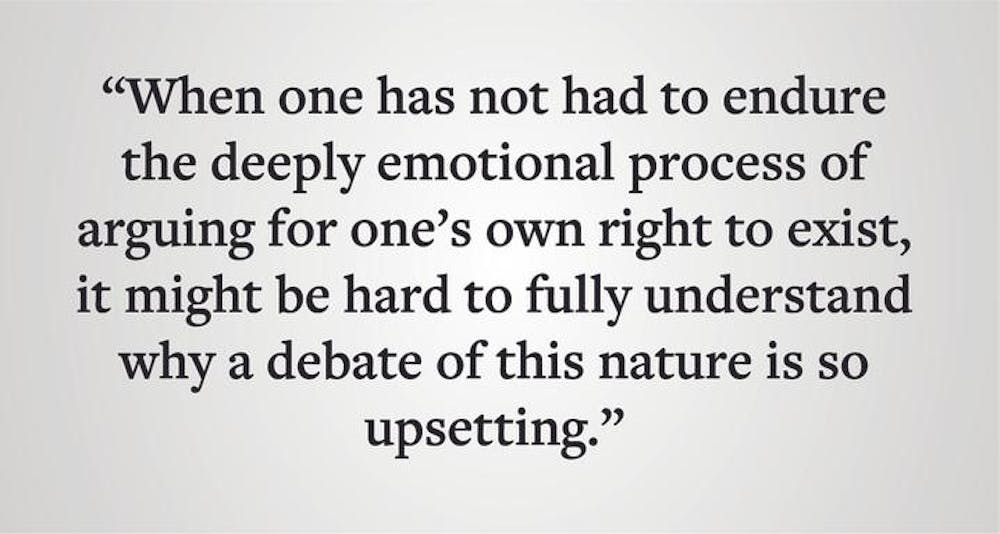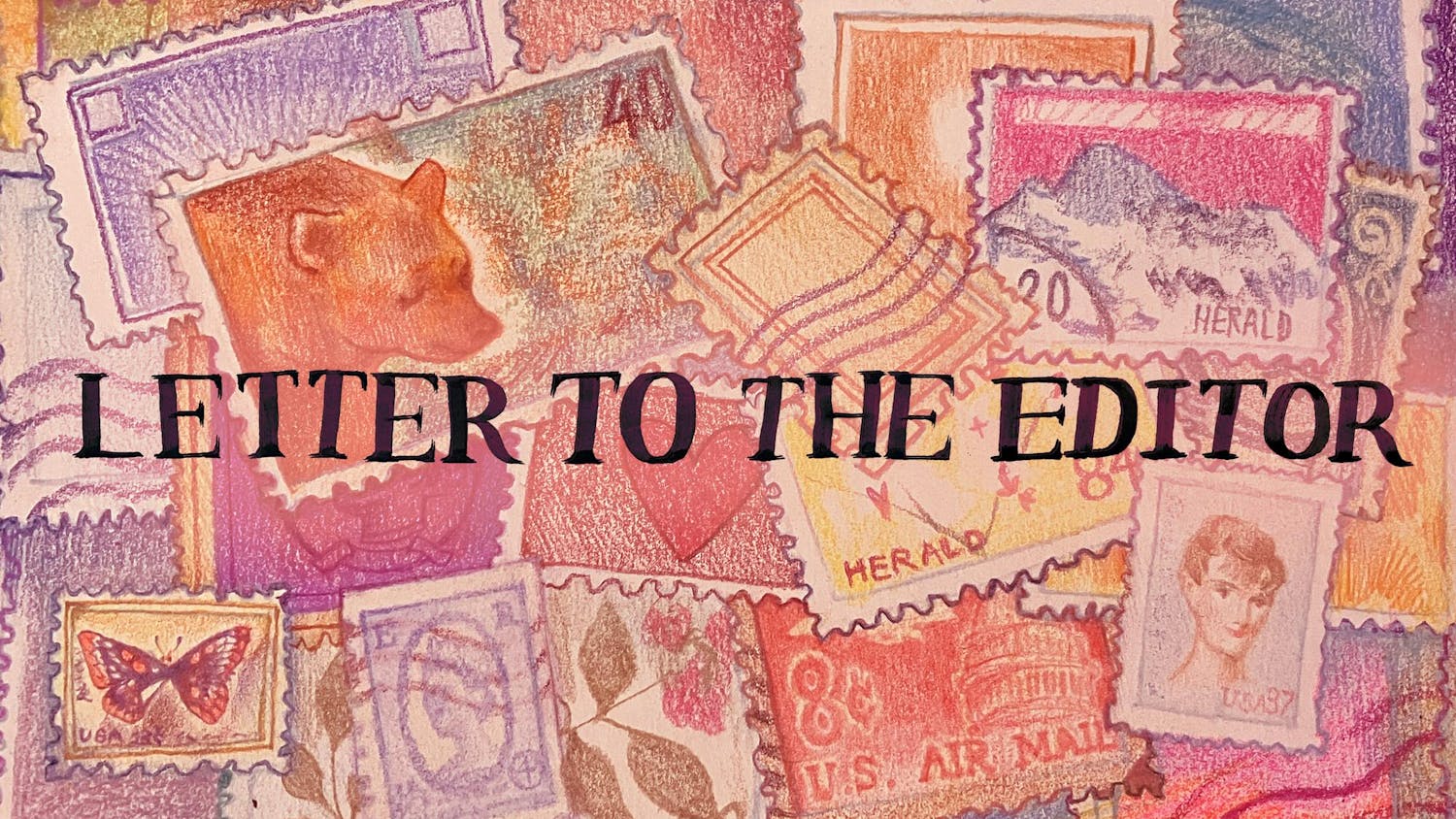On Friday, the editorial page board published a piece on the recent controversy surrounding a canceled Brown Political Union debate. I did not sign on to the piece.
The editorial argued for the importance of debate in maintaining Brown’s commitment to “open discourse” and academic freedom; I could not agree more on this front. The board proceeded to criticize attempts to cancel the event. The Brown Dream Team, a student organization that advocates for and represents undocumented students, protested the existence of this debate and celebrated its eventual cancellation. While the board may find the cancellation “troubling,” I do not.
The topic of BPU’s debate was concerned with whether local officers should cooperate with federal immigration authorities. Considering what current federal immigration policies are, it was indirectly a debate about whether undocumented+ students are allowed to exist peacefully. A debate format that so personally attacks our peers leaves undocumented students with a disproportionate emotional burden. For this reason, I support any Dream Team member not wanting this debate to happen or celebrating its cancellation.
When one has not had to endure the deeply emotional process of arguing for one’s own right to exist, it might be hard to fully understand why a debate of this nature is so upsetting. Let me illustrate it. Let’s say, hypothetically, that a BPU representative wants to have a calm, intellectual debate with you before an audience. The topic of debate is whether the police should obey a new executive order to only deport your family. The debate would be far more difficult for the student personally implicated in the conversation than an opposing party without any personal tie. It is on this point — the difficulty of entering into an asymmetrical debate — that I empathize with Dream Team and thus support their vocalized frustration. It is completely valid for them to disapprove of a conversation, which revolves around their identities, if it makes them uncomfortable and emotionally burdened.
The board argued that, even despite these personal stakes, the debate should go on in the spirit of free speech and pedagogy. Yet, I would argue that the Dream Team’s frustrated reactions are in and of itself an expression of free speech and open pedagogical dialogue. By sharing their discontent, they actively contributed to the conversation.
I am not concerned with whether the debate should happen or not. I am instead, extending support to the Dream Team whose disarray with BPU is justified. The editorial is misguided in saying Dream Team’s reaction to the debate is a way to “disengage from dialogue with those holding opposing views.” The Dream Team’s response — and even the editorial and my contention with it — is exactly what public, open discourse is. The editorial page board should support Dream Team’s own version of public speech. In fact, I hardly think Dream Team is requesting protection, as the editorial’s title might suggest; their ample and effective campaigning against the BPU shows they hardly need any.
The editorial page board must recognize free speech that exists outside of the confines of a BPU debate. After all, as the editorial says, it is vital to engage with peers who think differently from us.
Paulie Malherbe ’26 can be reached at paulie_malherbe@brown.edu. Please send responses to this column to letters@browndailyherald.com and other opinions to opinions@browndailyherald.com.
Dissenting Opinions: When The Herald’s editorial page board disagrees on a staff editorial, members have the opportunity to publish a dissent to explain why they did not sign on.





